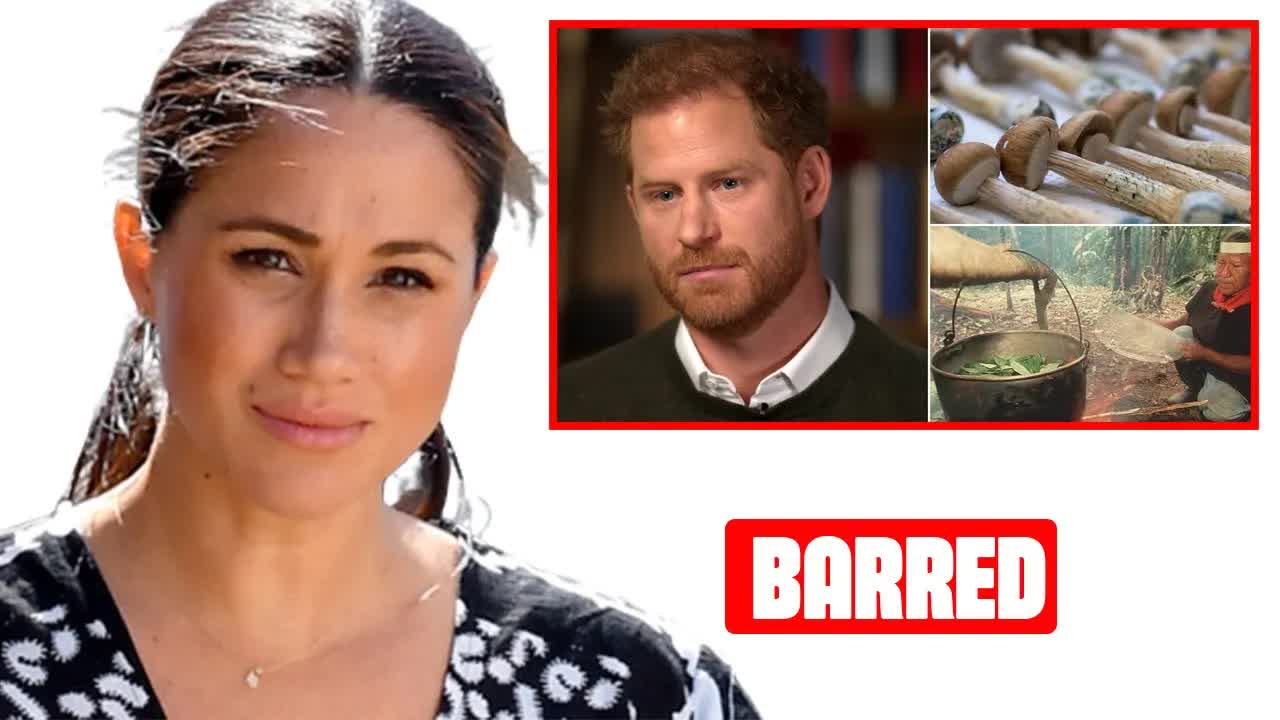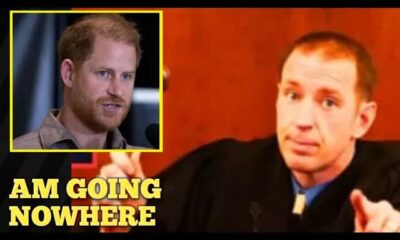The News
Prince Harry’s Visa Under Scrutiny: Calls for Transparency Grow
Prince Harry is in the spotlight again, and this time it's not just about his royal duties.
The Heritage Foundation, a conservative think tank, is demanding transparency regarding his U.S. visa application.
This request follows Harry's candid revelations in his memoir, “Spare,” where he admitted to using drugs like cocaine, cannabis, and magic mushrooms in the past.
With these admissions, questions are swirling about whether he disclosed this information when applying for his visa.
The Heritage Foundation argues that the public deserves to know if Harry declared his drug use on his visa application.
Mike Howell, the director of the organization, emphasized that this inquiry is crucial, especially considering the implications of drug use on visa eligibility.
He pointed out that if Harry failed to mention his past drug use, it could lead to serious consequences, including the potential revocation of his visa.
U.S. immigration laws are notoriously strict, with severe penalties for individuals who misrepresent themselves to officials.
Deportation and bans on future citizenship applications are just a couple of the risks involved.
The case of Isabella Brazier-Jones, a British woman who was banned from the U.S. for ten years after admitting to past cocaine use, serves as a stark reminder of the consequences of such admissions.
The Heritage Foundation's inquiry raises another layer of concern.
They suggest that if U.S. immigration officials were aware of Harry's drug history, it could indicate that he received preferential treatment due to his royal status and his wife's celebrity background.
Such favoritism, they argue, would be illegal and raises serious ethical questions about the immigration process.
In response to these allegations, a spokesperson for the U.S. State Department stated that visa records are confidential under the Immigration and Nationality Act.
Therefore, they cannot discuss any specifics regarding individual visa cases, leaving many details shrouded in mystery.
Harry's admissions during his book tour have drawn significant attention.
He revealed that he first tried cocaine at the age of 17 while on a shooting trip.
He also recounted experiences of hallucinating at a celebrity event in California and smoking cannabis after his initial date with Meghan Markle.
His openness about drug use has sparked debate about its potential impact on his residency status in the U.S.
Legal experts are weighing in on the situation.
Niama Rahimini, a former federal prosecutor, noted that Harry's honesty about his drug use might put him in a precarious position.
Typically, such admissions can lead to visa denials or revocations, as they may classify an individual as inadmissible under U.S. law.
Romani, president of the West Coast Trial Lawyers, echoed this sentiment, stating that there are no exceptions in immigration law based on royal status or the context of drug use.
This suggests that Harry's high profile does not shield him from the consequences of his past actions.
Piers Morgan, a well-known critic of Harry and Meghan, chimed in with his thoughts on the matter.
He suggested that Harry's recent revelations might jeopardize his ability to return to the U.K. for significant events, like the upcoming King's Coronation.
Morgan's skepticism about Harry's motives adds another layer to the ongoing narrative surrounding the Duke of Sussex.
Historically, British nationals have faced similar issues regarding U.S. entry due to drug-related admissions.
Notably, in 2014, celebrity chef Nigella Lawson was barred from boarding a flight to the U.S. after acknowledging her past cocaine use during a trial.
This precedent raises further questions about how Harry's situation will unfold.
As the situation develops, many are left wondering what the future holds for Prince Harry in the U.S. Will he face repercussions for his candidness?
Only time will tell, but one thing is clear: the scrutiny surrounding his visa application is far from over.




































































